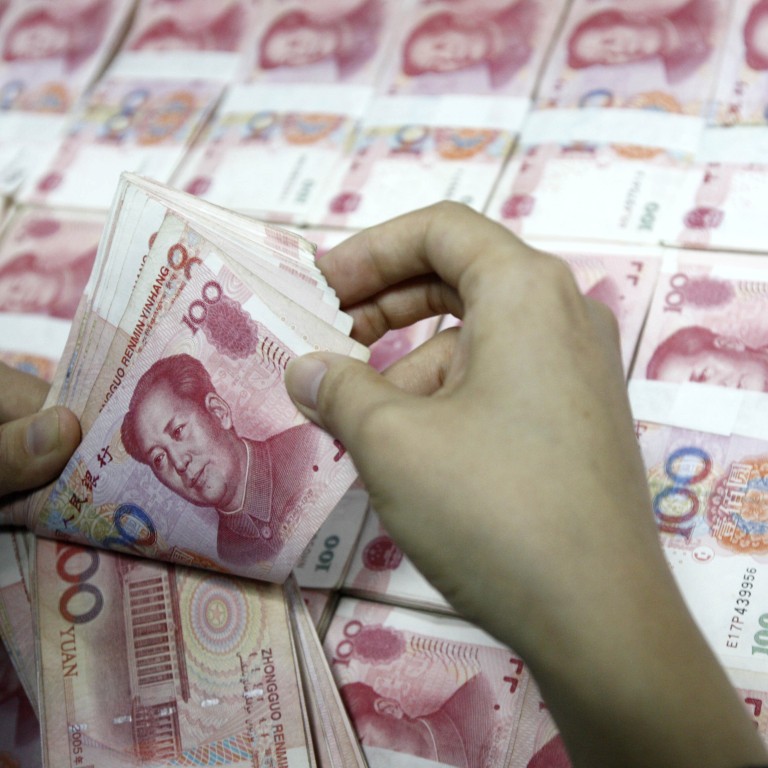
China’s Mr Renminbi says Beijing must dismantle capital controls to create a more globally accessible yuan
- Strict foreign exchange controls not conducive to internationalising the yuan, according to former central bank governor Zhou Xiaochuan
- However, Zhou’s ‘reformist’ take on the yuan runs contrary to some influential voices within China saying Beijing should not rush to open up capital account
China’s former central bank governor says it is time for Beijing to relax capital account controls to facilitate international use of yuan – a suggestion that comes as Chinese officials have been more vocal in criticising the global dominance of the US dollar.
Zhou Xiaochuan, who served as governor of the People’s Bank of China from 2002-2018, said at a financial forum in Beijing on Wednesday that China cannot have it both ways by maintaining rigid capital account controls while promoting use of the yuan abroad, according to Chinese magazine Caixin.
“Many of us were educated with command-economy textbooks … and we tend to prefer [tighter] controls, with a constant fear of things getting out of control,” Zhou was quoted as saying. “It seems we have a kind of mistrust or even a fear of the market and prices, including the exchange rate.”
Zhou, who is known as Mr Renminbi for his promotion of the Chinese currency, was quoted as saying that China’s obsession with stability is at the heart of its capital account controls, and that Beijing needs to abandon that mindset in promoting “free use of the yuan”.
The good guy will follow the rules, but the bad guy will find a way to get money out
Zhou also said that capital account controls are often ineffective.
“The good guy will follow the rules, but the bad guy will find a way to get money out,” he said. “It really requires a serious assessment of how effective China’s foreign exchange controls are.”
China’s central bank had stepped up capital controls after its devaluation of the yuan in August 2015 triggered a money exodus, with draconian curbs placed on outbound payments and remittance.
The situation, however, has changed rapidly since this summer, as China emerged as the world’s first major economy to report positive economic growth in the second quarter, while Chinese bonds now offer positive yields as interest rates in the United States and European Union have dropped to zero or even lower.
Capital inflows into China have been strong after Beijing made it easier for foreign investors to access onshore bonds, and the yuan has strengthened by about 7 per cent against the US dollar in the last six months, prompting discussions in Beijing as to whether the central bank needs to intervene to slow down the appreciation.
According to the latest data released by the Society for Worldwide Interbank Financial Telecommunication (Swift) – the electronic payment messaging network used by banks across the world – the yuan accounted for 1.97 per cent of international payments in September, a small rise from its 1.91 per cent share in August.
Zhou said that China’s closed capital account – which prevents investors from freely exchanging the yuan for other currencies – is one factor underlying the different prices of the same stock listed in both Shanghai and Hong Kong.
Meanwhile, Zhou was quoted as saying that China can still maintain certain controls and oversight of capital flows to combat money laundering and the funding of terrorism.
China is still maintaining its intention to make the yuan convertible under the capital account, but it has not given a clear timetable.
China’s resurgent economy grew by 4.9 per cent in third quarter
However, while Zhou offers a “reformist” take on the yuan, there are also influential voices within China saying Beijing should not rush to open up the capital account.
Wang Yiming, a former deputy head at the Development Research Centre under the State Council, said at the forum on Wednesday that this is not the time for China to open up the capital account, given that the coronavirus outbreak has increased financial risks.
Huang Qifan, the former mayor of Chongqing, said at a forum earlier this month that China’s ban on the free flow of money serves as a shield protecting the country from financial sanctions by the US. Huang said one lesson to learn from Russia’s economic misery following the collapse of the Soviet Union is that Moscow had rushed to allow the free flow of money, leaving the country “defenceless”.
“As long as China doesn’t allow the free flow of funds, China could be shielded from external shocks,” Huang said.

